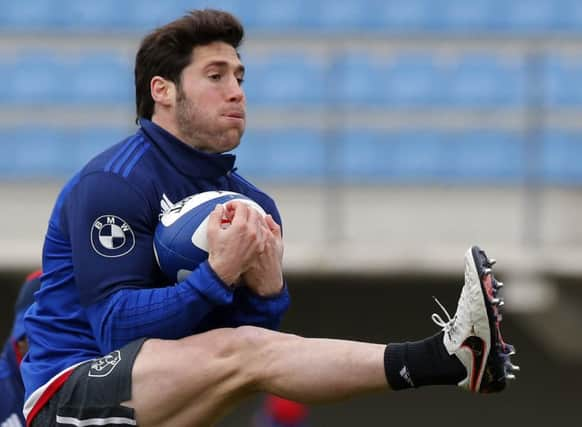Allan Massie: Our record against France is terrible


Home advantage should mean that we are more likely to beat France than Ireland. That’s the theory. But in truth there’s precious little evidence that playing at Murrayfield offers much advantage to Scotland. Moreover, our record against France is terrible. Time was when we always lost to France in Paris and beat them in Edinburgh. Yet since the professional era began we have won once in Paris (1999) and only twice at Murrayfield (1996 and 2006).
Frank Hadden is the only Scottish coach to have experienced a Six Nations win against France. Ian McGeechan, Matt Williams, Andy Robinson, Scott Johnson and Vern Cotter himself have all failed to do so. We have a better Six Nations record against England, the “auld enemy”, than against France, “the auld ally”.
Advertisement
Hide AdAdvertisement
Hide AdOf course the past is no sure guide to the present, and the general opinion is that this French team is not very good while this Scottish one is improving quite fast. France had very narrow wins in Paris against Ireland and Italy, and then lost in Cardiff. Arguably the Scottish performance there was better than the French one, because they never looked like winning whereas in our match the issue was long in doubt. So, in any comparison of the respective performances of the first three rounds of the tournament, you might say that, while France have more points, Scotland have won more admirers.
Certainly the French aren’t taking the match lightly. Scrum-half Maxime Machenaud says beating Scotland has become “complicated”. The powerful full-back Scott Spedding (South African born, but now a French citizen) observes that Scotland beat Italy “easily” while France struggled to do so. Damien Chouly, the Clermont Auvergne No 8, speaks respectfully of the power and efficiency of the Scottish forwards and of the opportunities they provide for the backs.
English and Welsh journalists and TV pundits have been pretty free in condemning this French XV, and our own Andy Nicol has – rather rashly? – declared that the French coach Guy Noves is “past his sell-by date”.
I find all this somewhat worrying, first because I don’t think France have been anything like as bad as painted; second, because I suspect that Noves is creating a team spirit that was often lacking when Philippe Saint-Andre was in charge; and third, because the team for Sunday looks to have more attacking options than the one which lined up in Cardiff.
Meanwhile, Vern Cotter hasn’t stuck to the old maxim: “never change a winning team”. He has obviously been eager to get Alex Dunbar back in the side as soon as he was fit with a couple of matches under his belt, and Dunbar’s return certainly stiffens the midfield defence and our ability to win possession at the tackle point.
That Mark Bennett is the one to lose out is a tribute to the quality of Duncan Taylor’s play in Cardiff and Rome, and is an indication of the unusual wealth of choice we now have in the centre-threequarter positions. Bennett drops out of the squad only because Peter Horne covers 10 as well as 12. Up front, in the continued absence of the injured David Denton, Josh Strauss’s powerful ball-carrying is preferred to Ryan Wilson’s defter skills.
Frankly, this is a match without a clear favourite, but if I was still a betting man, I would be happier risking my money on a Scottish victory in Dublin next week than on one at Murrayfield tomorrow.
Meanwhile the match at Twickenham today is being billed as a championship decider and, by some, as England’s fourth step towards their first Grand Slam since 2003. There’s talk also of it as an encounter between a battle-hardened, immensely experienced Welsh XV and an improving but less experienced English one. Eddie Jones plays up this contrast by saying “we are a new England”, though in fact only the young Saracens lock Maro Itoje didn’t play in Stuart Lancaster’s sides.
Advertisement
Hide AdAdvertisement
Hide AdEngland may have more power up front, Wales undoubtedly more behind the scrum. On the other hand the Welsh back row is better and better balanced than the English one, while the English backs pass more often and more accurately than the Welsh ones. So it’s anybody’s game, and that’s still the case if it comes to a goal-kicking contest between Dan Biggar and Owen Farrell. The one thing that may tilt the balance in favour of Wales is the English propensity to give away far too many penalties. Which may lead you to conclude that the referee may be the man to decide the outcome.